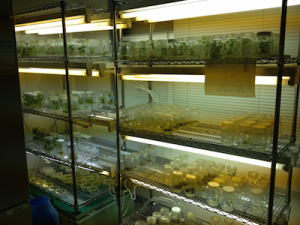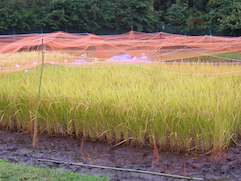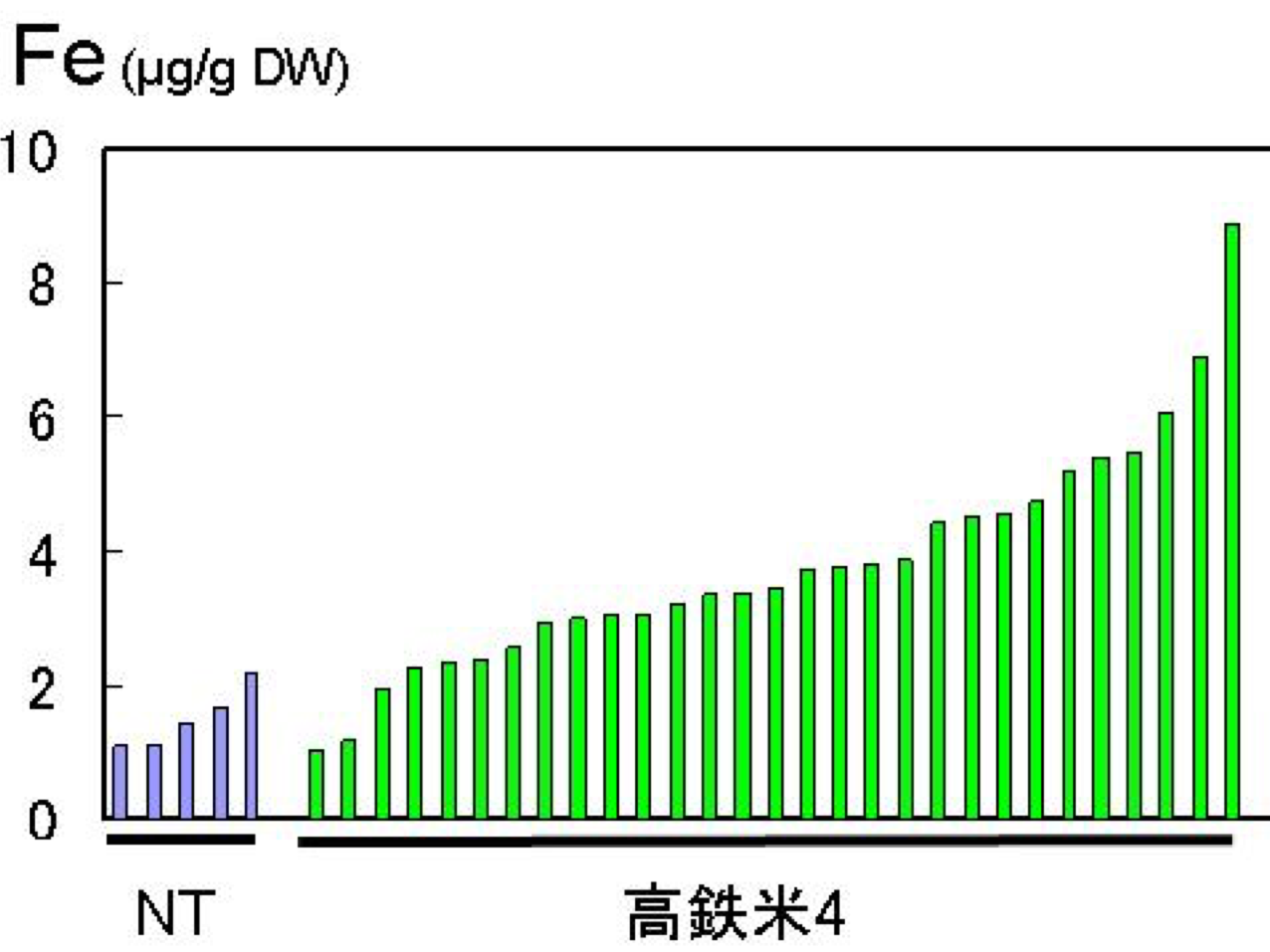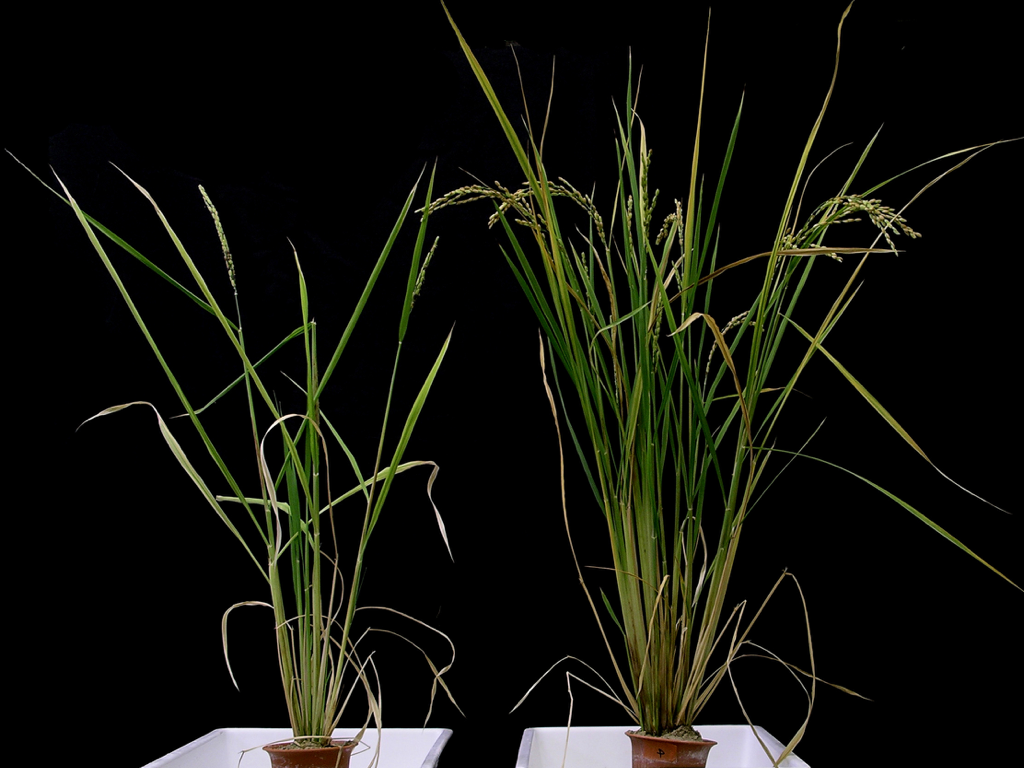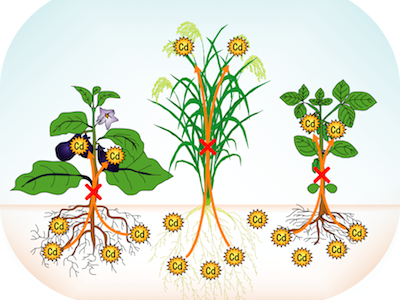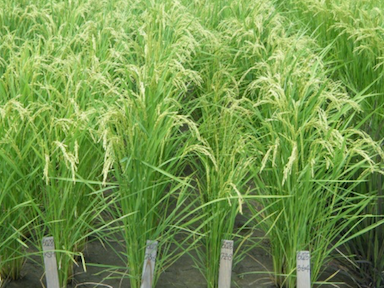Research at the Laboratory of Plant Biotechnology
The research on the creation of plants with new functions which can contribute widely to the society is conducted at the Laboratory of Plant Biotechnology through the full use of biotechnology.
We are creating plants that produce useful substances by utilizing or enhancing the metabolic pathways of plants, crops that can grow even in soil lack of absorbable nutrient metal elements, crops with large amounts of iron and zinc, etc.
- plant culture room
- hairy roots
- re-differentiating sweet potato
Research on mineral nutrition of plants
How plants (mainly rice) absorb minerals such as iron and zinc from the soil and transport them to leaves, fruits and seeds, and what molecules, proteins and genes are involved in the pathway is clarified. Using the genes revealed, we can create iron deficiency-tolerant crops, high-iron-containing crops, and so on.
・ Elucidation of the function of nicotianamine in higher plants
・ Control mechanism of gene expression by iron nutrition
・ Molecular mechanism of mugineic acid secretion
・ Stress tolerance mechanism of plants
・ Metal ion transporters of grasses
・ Creation of iron deficiency resistant plants
・ Nicotianamine synthase
・ Molecular mechanism of iron absorption, transfer and translocation in plants
・ Development of functional food nicotianamine rice
・ Zinc nutrition in plants
- tomato mutant Chloronerva
- Fe-deficiency rice
- Strategy-II Fe uptake
Creation of iron and zinc fortified crops (rice, sweet potato)
To solve iron and zinc deficiency, a problem mainly in developing countries, genes are introduced into rice and sweet potatoes, and more iron and zinc, which are essential trace metal elements, are taken in from the soil and stored in rice and potatoes. The rice and sweet potatoes can be cultivated and eaten by local people to eliminate iron and zinc deficiency and save children living in developing countries.
- transgenic rice in isolated field
- high Fe rice
- Fe-deficiency tolerant rice
Creation of low-accumulation cadmium crops
Cadmium is a harmful heavy metal, which causes “Itai-itai disease”. We are working on creating safer low cadmium crops as food.
- low Cd crops
- low Cd rice
Creation of edible vaccines with useful substances
Infectious diseases have become a serious problem, especially in developing countries. In collaboration with the laboratory of Global Animal Resource Science, we are working on the creation of edible vaccines, which is a crop that produces and accumulates antigenic proteins that are important for immunity acquisition. We are also working on the production of useful substances using hairy roots.
Overseas field research
There are some examples of Overseas field research during master and doctor program.
2007 USA (Symposium, Tour to the University)
2006 China (International Conference, Tour to the University)
2002 USA (International Conference, Genetically Modified Crops)
2001 France (Symposium), Scotland
2018 Australia (University)
2018 Italy (FOA)
2011 Malaysia (University, Plantation)
2007-2010 Thailand (Rural Development)
2005 USA (university, farm, company)
2003-2004 Vietnam (University, Examination Institute)
1997-2002 Indonesia (University, Examination Institute)
Employment
Chiba University, Kagawa University, Yokohama City University, Ishikawa Prefectural University
Gardening Plant Breeding Research Institute, Food Company (Maeil Dairies / Korea)
Food companies (Ito En, Mizkan, Kanebo Foods, Nisshin Oillio, Sanwa Shurui, Morinaga Milk Industry, Zensho Holdings)
Pharmaceutical companies (Reharukan Pharmaceutical Co., Ltd., Shionogi Pharmaceutical Co., Ltd., Astellas Pharma Inc.)
Ministry of Agriculture, Forestry and Fisheries (Plant Protection Station)
Others (CAC, iiSC, EM Research Organization, Mitsubishi Corporation, Accenture, Mizuho Information & Research Institute, NTT DATA, Mitsubishi Electric, Bridgestone, SIGMAXYZ, Mitsubishi Research Institute, Mitsubishi Shokuhin, Chunichi Shimbun, Takii Seedlings)

